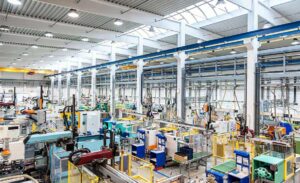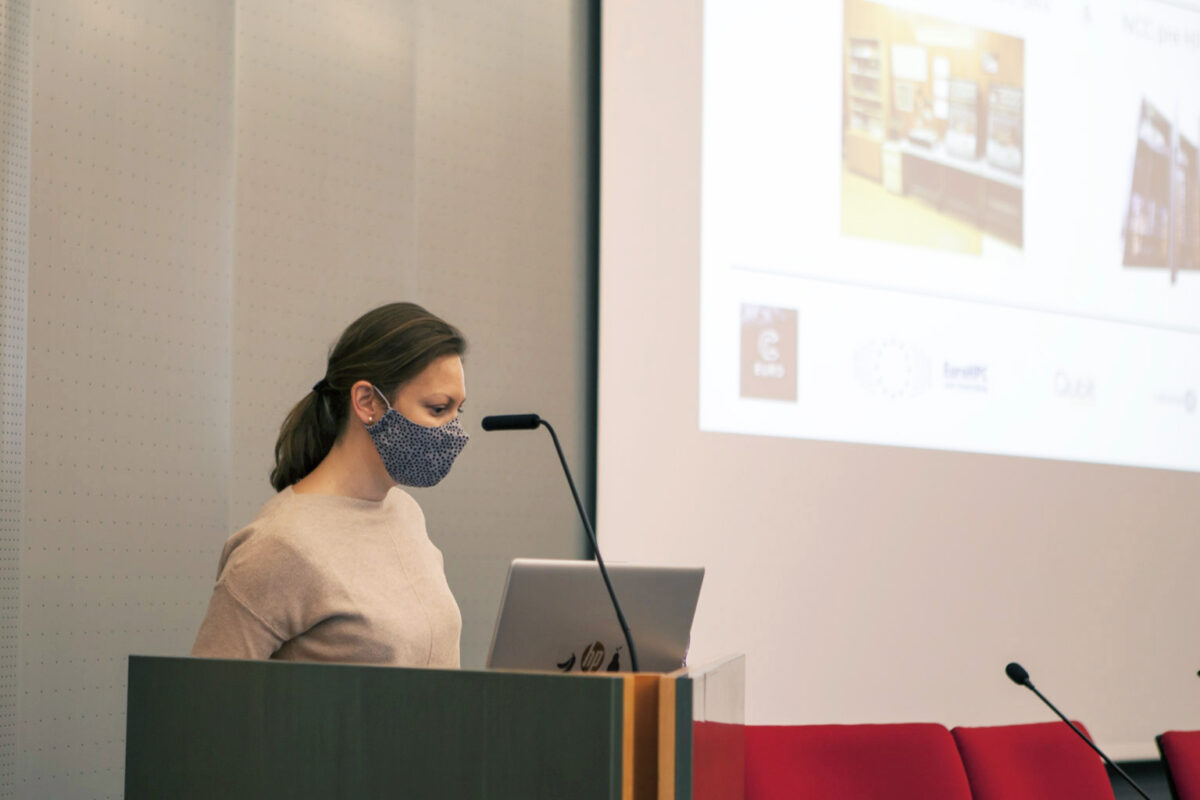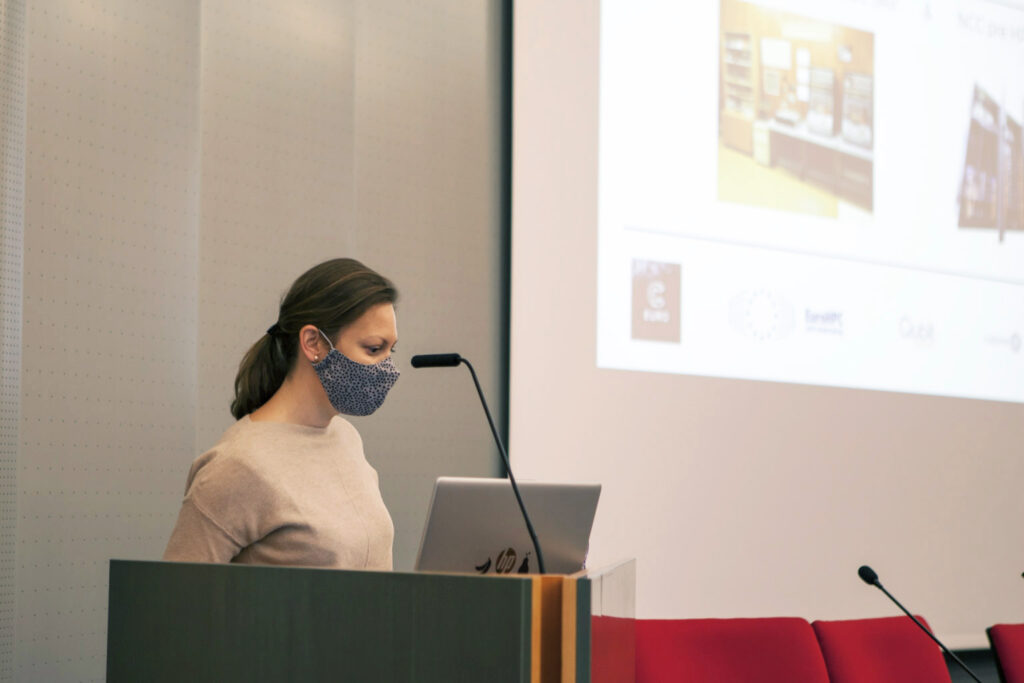Current trends and visions in HPC in Slovakia
On September 29, we started a series of lectures "Supercomputing in Science" in the lecture hall of the Slovak Academy of Sciences Popularization-educational lectures are a joint activity of the Computer Museum and the National Competence Center for HPC NCC, as the primary contact point for HPC in Slovakia, covers, among other things, educational and dissemination activities in this area.
Filip Holka, Head of the High-Performance Computing Department, and Lukáš Demovič, Director of COO SAS, took care of the introductory event Current trends and visions in HPC in Slovakia. In the first part, the participants learned how to define a supercomputer, on what technologies today's supercomputers are built, everything that must be taken into account in their design, as well as how to evaluate performance and energy efficiency. The second part of the lecture brought an interesting recapitulation of the history of HPC in Slovakia, but also a description of the current state and capacities in comparison with Europe and the surrounding countries. It is clear that Slovakia needs to invest in HPC infrastructure and support the digitization and use of innovative technologies, if it is to keep up with the rest of Europe. As Slovakia is a part of the European structures PRACE-RI and EuroHPC JU, we also touched on the benefits and opportunities that international cooperation brings to us and our users.
Last but not least, we also focused on initiatives that arose in Slovakia - specifically the National Supercomputing Center (NSCC), whose ambition is to develop HPC infrastructure and support high-performance computing in Slovakia.
The participants used the break with refreshments and coffee for informal conversations and discussions with the organizers and speakers.
You can watch the recording of the event on Facebook and YouTube and you can already register for our next lectures.
Schedule and Registration
- October 12, 17:00 - Computer simulations and calculations as an essential tool in science
Pavel Neogrády (Faculty of Natural Sciences, Comenius University)
- October 26, 17:00 - Development of technology and computer architecture – from 1-processor serial computers to supercomputers
Martin Šperka (Computer Museum, COO SAS)
- 10. novembra 2021 o 17:00 – Operation systems in multiprocessor clusters
Dušan Bernát (Faculty of mathematics, physics and informatics, Comenius University)
- November 23, 17:00 - Short guide to software parallelization
Jaroslav Suchánek (Biomedical Research Center, SAS)
- December 7, 17:00 - Federated distributed computing
Ladislav Hluchý (Institute of Informatics SAS)
- December 21, 17:00 - Modelling of 2D systems properties using the Quantum Monte Carlo methods
Ivan Štich (Institute of Physics SAS)
More information about the series
 BeeGFS in Practice — Parallel File Systems for HPC, AI and Data-Intensive Workloads 6 Feb - This webinar introduces BeeGFS, a leading parallel file system designed to support demanding HPC, AI, and data-intensive workloads. Experts from ThinkParQ will explain how parallel file systems work, how BeeGFS is architected, and how it is used in practice across academic, research, and industrial environments.
BeeGFS in Practice — Parallel File Systems for HPC, AI and Data-Intensive Workloads 6 Feb - This webinar introduces BeeGFS, a leading parallel file system designed to support demanding HPC, AI, and data-intensive workloads. Experts from ThinkParQ will explain how parallel file systems work, how BeeGFS is architected, and how it is used in practice across academic, research, and industrial environments. When a production line knows what will happen in 10 minutes 5 Feb - Every disruption on a production line creates stress. Machines stop, people wait, production slows down, and decisions must be made under pressure. In the food industry—especially in the production of filled pasta products, where the process follows a strictly sequential set of technological steps—one unexpected issue at the end of the line can bring the entire production flow to a halt. But what if the production line could warn in advance that a problem will occur in a few minutes? Or help decide, already during a shift, whether it still makes sense to plan packaging later the same day? These were exactly the questions that stood at the beginning of a research collaboration that brought together industrial data, artificial intelligence, and supercomputing power.
When a production line knows what will happen in 10 minutes 5 Feb - Every disruption on a production line creates stress. Machines stop, people wait, production slows down, and decisions must be made under pressure. In the food industry—especially in the production of filled pasta products, where the process follows a strictly sequential set of technological steps—one unexpected issue at the end of the line can bring the entire production flow to a halt. But what if the production line could warn in advance that a problem will occur in a few minutes? Or help decide, already during a shift, whether it still makes sense to plan packaging later the same day? These were exactly the questions that stood at the beginning of a research collaboration that brought together industrial data, artificial intelligence, and supercomputing power. Who Owns AI Inside an Organisation? — Operational Responsibility 5 Feb - This webinar focuses on how organisations can define clear operational responsibility and ownership of AI systems in a proportionate and workable way. Drawing on hands-on experience in data protection, AI governance, and compliance, Petra Fernandes will explore governance approaches that work in practice for both SMEs and larger organisations. The session will highlight internal processes that help organisations stay in control of their AI systems over time, without creating unnecessary administrative burden.
Who Owns AI Inside an Organisation? — Operational Responsibility 5 Feb - This webinar focuses on how organisations can define clear operational responsibility and ownership of AI systems in a proportionate and workable way. Drawing on hands-on experience in data protection, AI governance, and compliance, Petra Fernandes will explore governance approaches that work in practice for both SMEs and larger organisations. The session will highlight internal processes that help organisations stay in control of their AI systems over time, without creating unnecessary administrative burden.

